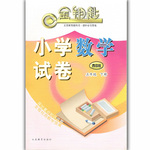题目内容
“Are you happy?” The simple question usually makes people confused (迷惑的). Even Mo Yan, who won a Nobel Prize, replied to it by saying, “I don’t know.”
When a migrant worker (农民工) was asked, “Are you happy? (Ni Xing Fu Ma?)” by a CCTV reporter, he looked confused before replying, “My family name is Zeng. (Wo Xing Zeng.)” This has become a joke. But his answer showed migrant workers and TV reporters live in different worlds and they cannot even communicate with each other.
Similarly, when asked, “Are you happy?” a 73-year-old man, collecting used plastic bottles in a street in Zhejiang, said, “The bottles can be sold for 0.1 yuan each.” Asked again, he said, “The government is good.” The reporter went on, “My question is ‘Are you happy?’” The old man answered, “My hearing is not good.”
The reporter probably tried to reach the same answer that the interviewees(被采访者) including the migrant worker and the old man are “happy”.
In fact, when the question is asked, we should learn about people’s true situation and their true wishes and opinions but their “Yes” or “No”.
Luckily, the government has paid more attention to the importance. Now there are many TV programs giving common people the chance to give their opinions.
“Everything we do is aimed at letting people live more happily.” At last year’s National People’s Congress (人大), Wen Jiabao said and agreed that increasing happiness would be a top aim for the 12th five-year plan.
小题1:Ten plastic bottles could be sold for ________ to the 73-year-old.
小题2:The government has paid more attention to the importance of ________.
小题3:Which of the following is NOT true according to the passage?
小题4:This passage is mainly about ________.
When a migrant worker (农民工) was asked, “Are you happy? (Ni Xing Fu Ma?)” by a CCTV reporter, he looked confused before replying, “My family name is Zeng. (Wo Xing Zeng.)” This has become a joke. But his answer showed migrant workers and TV reporters live in different worlds and they cannot even communicate with each other.
Similarly, when asked, “Are you happy?” a 73-year-old man, collecting used plastic bottles in a street in Zhejiang, said, “The bottles can be sold for 0.1 yuan each.” Asked again, he said, “The government is good.” The reporter went on, “My question is ‘Are you happy?’” The old man answered, “My hearing is not good.”
The reporter probably tried to reach the same answer that the interviewees(被采访者) including the migrant worker and the old man are “happy”.
In fact, when the question is asked, we should learn about people’s true situation and their true wishes and opinions but their “Yes” or “No”.
Luckily, the government has paid more attention to the importance. Now there are many TV programs giving common people the chance to give their opinions.
“Everything we do is aimed at letting people live more happily.” At last year’s National People’s Congress (人大), Wen Jiabao said and agreed that increasing happiness would be a top aim for the 12th five-year plan.
小题1:Ten plastic bottles could be sold for ________ to the 73-year-old.
| A.0.1 yuan | B.1 yuan | C.10 yuan | D.20 yuan |
| A.learning about people’s true wishes and opinions |
| B.people’s different replies to “Are you happy?” |
| C.improving migrant workers’ education |
| D.keeping the old people’s health |
| A.The reporters wanted the people to say “Yes” when asked “Are you happy?” |
| B.Letting people live more happily is a top aim in the next five years. |
| C.The reporter asked the old man three different questions. |
| D.We can call the migrant worker Mr. Zeng. |
| A.the questions | B.the happiness |
| C.the popular songs | D.the education |
小题1:B
小题2:A
小题3:C
小题4:B
试题分析:】这篇短文主要介绍了央视记者就幸福问题对人们做的一个调查,重点记述了对一位民工和老人的调查,让人感动而心酸。
小题1:根据短文第三段“The bottles can be sold for 0.1 yuan each.”描述,可知选A。
小题2:根据短文第五六段描述,可知政府非常注意了解人们的真实愿望和意见。故选A。
小题3:根据短文第三段描述,可知记者一共问了这位老人三次相同的问题,故选C。
小题4:这篇短文主要介绍了央视记者就幸福问题对人们做的一个调查,故选B,幸福。
点评:本文浅显易懂,层次分明,学生很容易把握文章中心内容。答题中注意带着问题阅读短文,一般就能顺利找出答题依据。对于不能直接找到根据的问题注意联系上下文,根据短文中心总结出正确答案。

练习册系列答案
 金钥匙试卷系列答案
金钥匙试卷系列答案
相关题目
